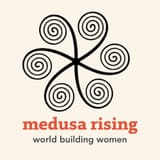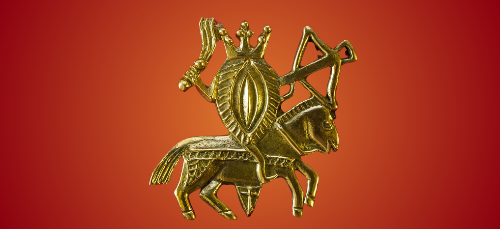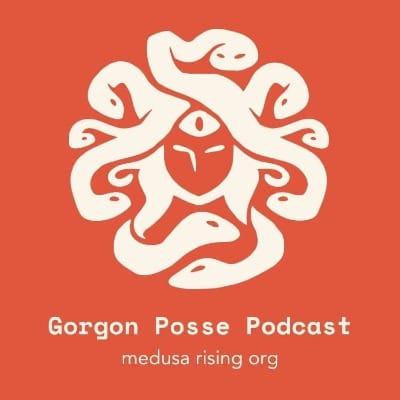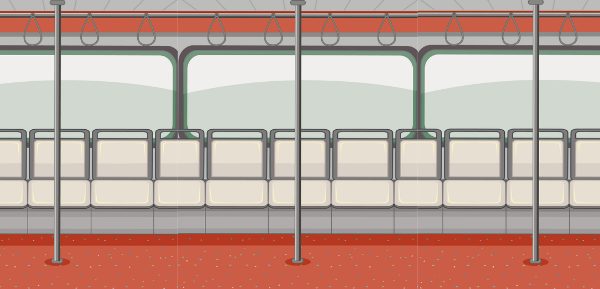Archive | Chile’s Black Community Face Renewed Threats Amid Surge in Far-Right Politics | by Rebecca Johns
A reminder of how very global the rise the far right is

6 June 2025 | Santiago, Chile
Activists worry that the increasingly popular far right will worsen the lives of Black People living in Chile.
Michel-Ange Joseph [video in Spanish] was riding the metro in Santiago in 2022 when she was physically assaulted by a security guard.
She was on her way home from her job as a local government official when the man mistook her for a street vendor.
"He hit me, and told me to go back to my country, that I came to dirty his country, that Haitian women come to dirty Chile," Joseph recalls. For her, the attack was "just one of many instances" of being targeted for "just being a Black woman."
But with a presidential election looming in November 2025, Joseph fears the rising influence of far-right parties could threaten not only immigrant rights but also the fragile progress made toward racial equality.
Far-Right Success
As in many other Latin American countries, the far right has been steadily growing in Chile. A key moment came in 2022 when the Republican Party (PLR) won the majority share of the seats in the constitutional assembly.
Now, with the first round of voting set for November 2025, the struggling left-wing government will have to fight for survival against an even stronger opposition, with two hard-right politicians polling in 3rd and 5th place.
Both parties offer a strong anti-immigration rhetoric. The PLR leader, Jose Kast, recently announced the Border Shield Plan, which involves the building of 5-meter-high security fences, equipped with motion sensors and drone surveillance, alongside 3-meter deep ditches, all with the aim of stopping migrants from entering the country.
Joseph worries that the right’s promises of deportation and rhetoric of ‘Chile first’ will lead to racism against all ethnic minorities living in the country.
“People of African descent are prejudiced because we are the most noticeable from our skin colour when it comes to classifying who is a migrant and who is not.”
Why Is There Growing Racism in Chile?
The rise of anti-immigration sentiment, which often coincides with the mistreatment of Black people, marks a shift for a country that once presented itself as welcoming towards incoming refugees.
Christopher Sabatini, a senior fellow at Chatham House, explains: "In the past, other countries in Latin America welcomed Chilean exiles during the military government. For a long time, Chile was then repaying them and committed itself to helping people who were fleeing repression and violence."
Chile has since experienced high levels of migration, with the foreign-born population last predicted to be 1.6 million, a 291% rise since 2013.
However, in recent years, crime rates have also begun to rise, which some in the country blame on this increase in foreign-born residents.
"There have been several cases of crime linked to Haitian and Venezuelan immigrants that have been amplified by the media, including some very grisly crimes," Sabatini observes.
He refers to the presence of the Venezuelan gang Tren de Agua within Chile, made public after two bodies were discovered in a torture house.
InsightCrime, which monitors organized crime in Latin America, claims that crimes like drug trafficking, kidnapping, migrant smuggling, money laundering, and weapons offences increased by 8.4% in the country, while organized crime-related violence jumped around 37%, from 3,834 cases to 5,265 between 2022-23.
Security issues are at the forefront of voters' minds with Latinobarometer reporting that 30.9% of Chileans polled now believe that crime is the most important problem in the country.
Voters' concerns about safety leads Sabatini to conclude that Chile is “now at a tipping point where politicians are going to start to fan xenophobia and racist sentiments." Indeed, 45.3% of those polled believe that immigrants have contributed to the rising crime rate.
Other Causes of Racism
Dr Sofía Ugarte, a social anthropologist specializing in racism in Chile, shows that migration is just one element and that the racist abuse people are experiencing now can be traced back through centuries of Chilean history.
The government only recognised Afro-descendent tribal people in the country as an official group in 2019 and is yet to recognise them as an ethnic group in the official census.
Ugarte believes this lack of recognition means that “Blackness in its migrant iteration is considered foreign and alien, dangerous and violent.”
Such sentiments were illustrated last month when retailer Falabella launched a Mother's Day ad featuring a Black woman, prompting widespread social media condemnation for failing to represent real Chileans.
Medusa Rising spoke to Magdelena, aged 33, who moved to the UK from Chile and has reflected on the treatment of Black people in her home country.
"Chile can seem quite homogeneous in terms of culture and race; however, this is partly due to the invisibility of people of colour or Afro-Chileans. The prevailing stigma is more along the lines of: 'There are no Black people in Chile, and if there are, they're not Chilean.”
The Road to Improvement
To counteract discrimination, Ugarte feels we need “More education of Chile's multicultural past and present, including the Indigenous and Afro-descendant components of contemporary Chilean culture to critically address what being Chilean means.”
On April 10, many of these women attended the first International Panel of Afro-Political Women in the Mexican Senate. This bought together Afro-descendant women with political positions to analyze the challenges, challenges, and achievements in Afro-descendant political participation.
CIJYS also forms part of the G100, an international action and think tank composed of high-level women leaders involved in politics, business, and activism.
The G100 network has held gatherings in Costa Rica and Mexico, bringing together what Joseph describes as "the largest number of Black women participating in politics" to discuss shared challenges and strategies.
“Its goal is to promote gender equality, economic inclusion, and global female political representation”, explained Josef.
They are set to hold talks across the world in the coming months, and on the 22nd of May they met with a UK MP to discuss women in leadership and closing the gender gap.
But whether these voices will cut through the anti-immigration discourse in Chile will not be clear until winter 2025 with the results of the Presidential election.
Rebecca Johns is a freelance journalist based in London who worked in Chile for the last year writing for The Latin Times and Latin America Reports. She has just joined the BBC to report on Chile and Latin America.
Some Connections in Latin America
With thanks to Michel-Ange Joseph for sharing these groups with us!
Michel-Ange Joseph
Instagram: @michelange.cl
Geledés – Instituto da Mulher Negra (Brazil)
Civil rights, environmental, health, racial and gender justice
Web: https://geledes.org.br
Brigada Feminista (Chile)
Defense of sexual and reproductive rights, intersectionality
Web: https://lacolectivafeminista.org.sv
Agrupación Xangô (Argentina)
Afro-descendant migration, Afrofeminism, gender and human rights
Instagram: @agrupacionxango
Starting at $2 USD per month | Access to Gorgon Posse
videos, Commenting & conversation, External reading recommendations, & Special Event invitations.
You. A feminist you know. A feminist organization or community. A feminist blog or pod. Let's build coalition!
Reach out anytime for any reason: info@medusarising.org.
( ^-^)ノ∠※。.:*:・'°☆ ( ^-^)ノ∠※。.:*:・'°☆ ( ^-^)ノ∠※。.:*:・'°☆






